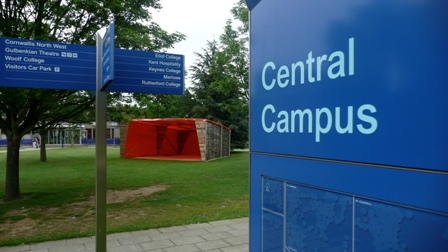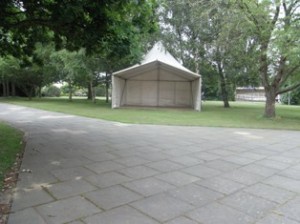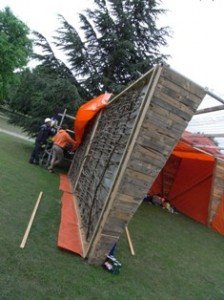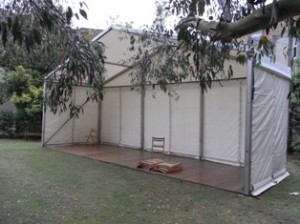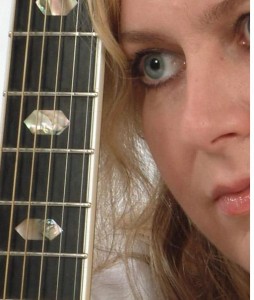Last Friday, we heard the interior of the proposed Colyer-Fergusson centre for Music Performance.
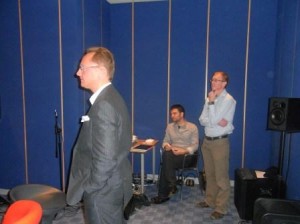
Not literally, alas: but virtually. Rising with the lark (actually, before the lark: I had to shoo him out of bed), and then up to London to meet with project members from the University and representatives of Tim Ronalds Architects and Carr and Angier Theatre Consultants at the London offices of Arup Acoustics, where acousticians were modelling the sonic interior of the building.
Sitting in the centre of a small sound-booth, we were presented with various ensembles – orchestra, choir, string quartet, brass ensemble, solo singer and continuo – recorded anechoically, and then heard their performances realised in a virtual sonic model of the new building’s interior.
The great strength of the proposed building is that it is a flexible performance space. It will be able to change in order to accommodate a diverse range of performing ensembles, from full symphony orchestra and chorus to chamber choirs, big bands, string and brass ensembles., We explored the various permutations of the variable acoustics – fully reverberant, then with varying degrees of the acoustic drapes being set to render the acoustic gradually less reverberant – with different ensemble set-ups, and assessed the differening impacts of the acoustic settings on each.
Potentially, the sonic space created by the hall, and the varying acoustic properties offered by the variable acoustics, are fantastic, and afford a wide array of opportunities for ensemble music-making, ranging from the large scale to the intimate, each with a suitable (almost bespoke) acoustic environment. The nature of the reverberation within the hall will be able to be altered to suit the different types of rehearsing and performing, tailored to meet the demands of the varying ensembles using the space.
It is unquestionably a fantastic space for music-making, and we are highly excited. We’ll keep you posted as further developments unfold: keep your ear to the ground.

 I can’t help it:
I can’t help it: 
